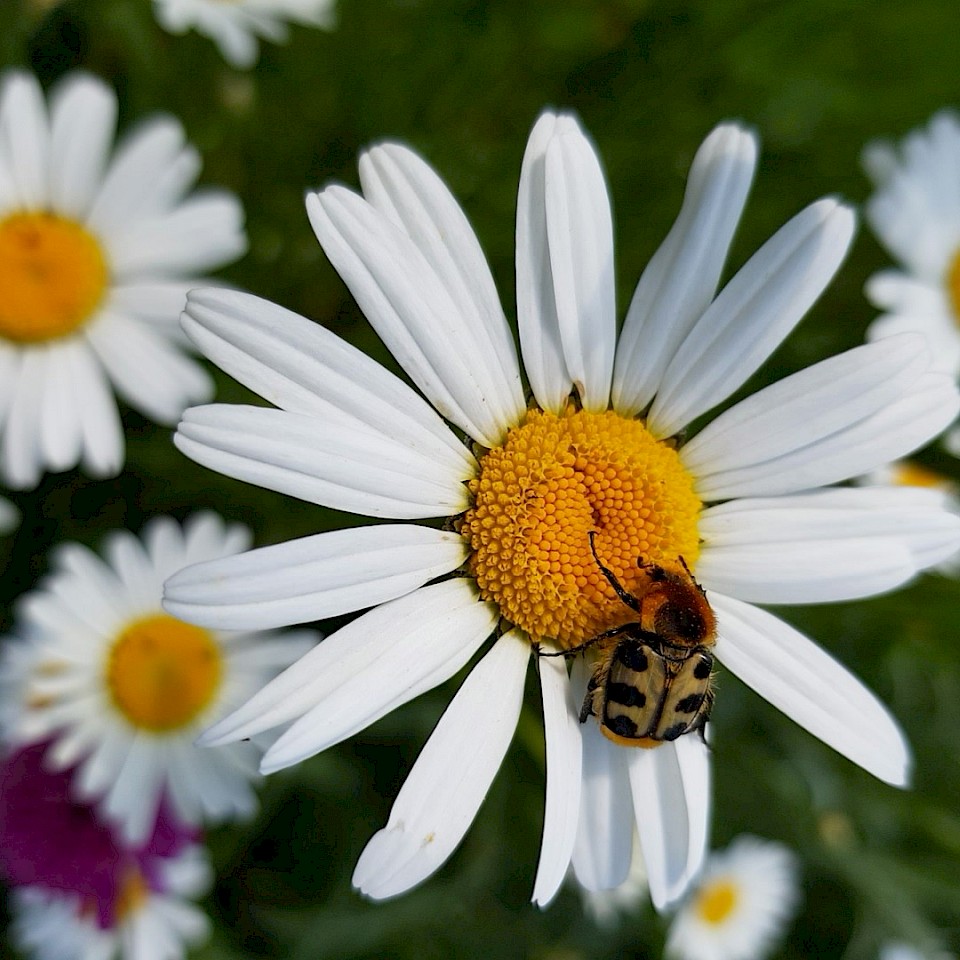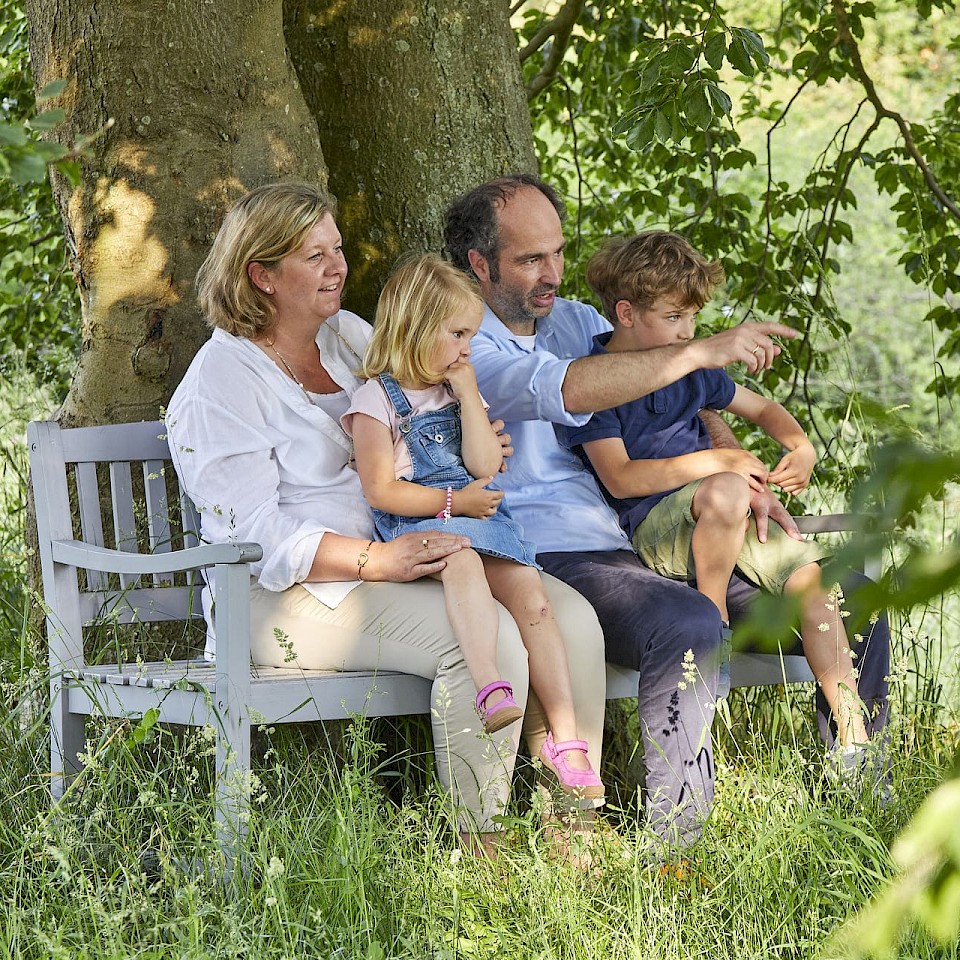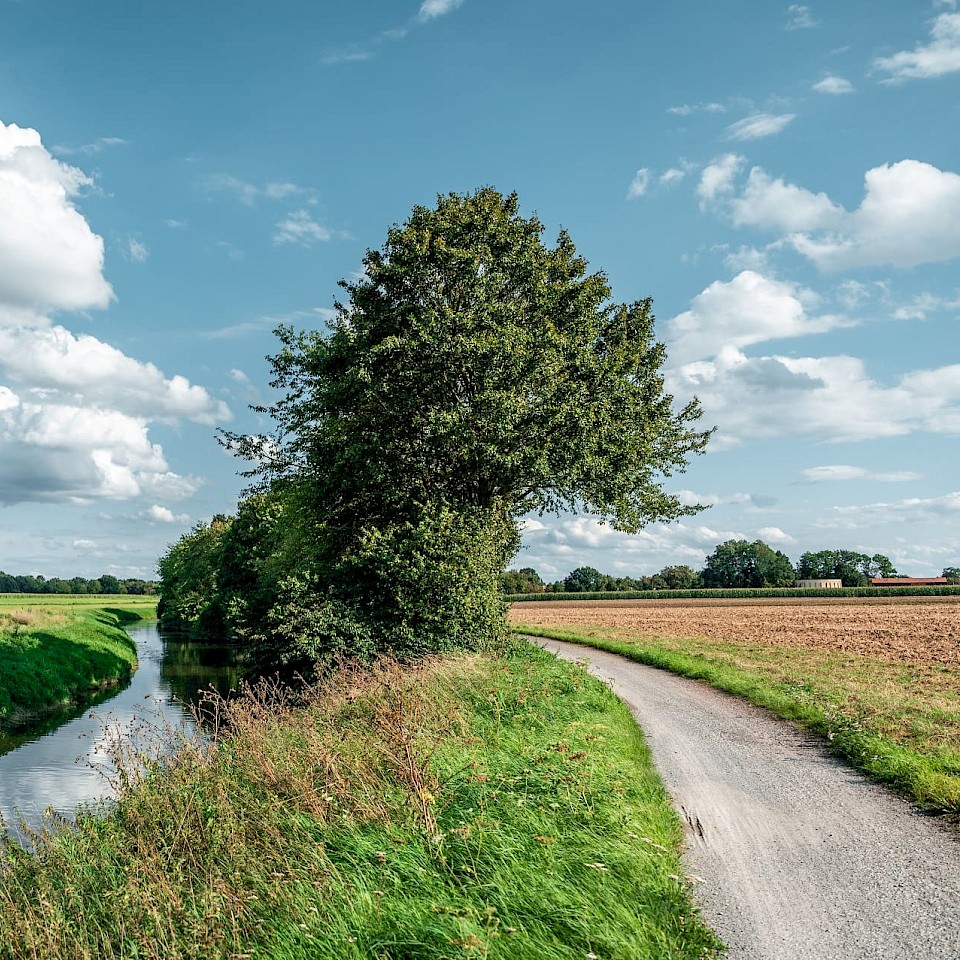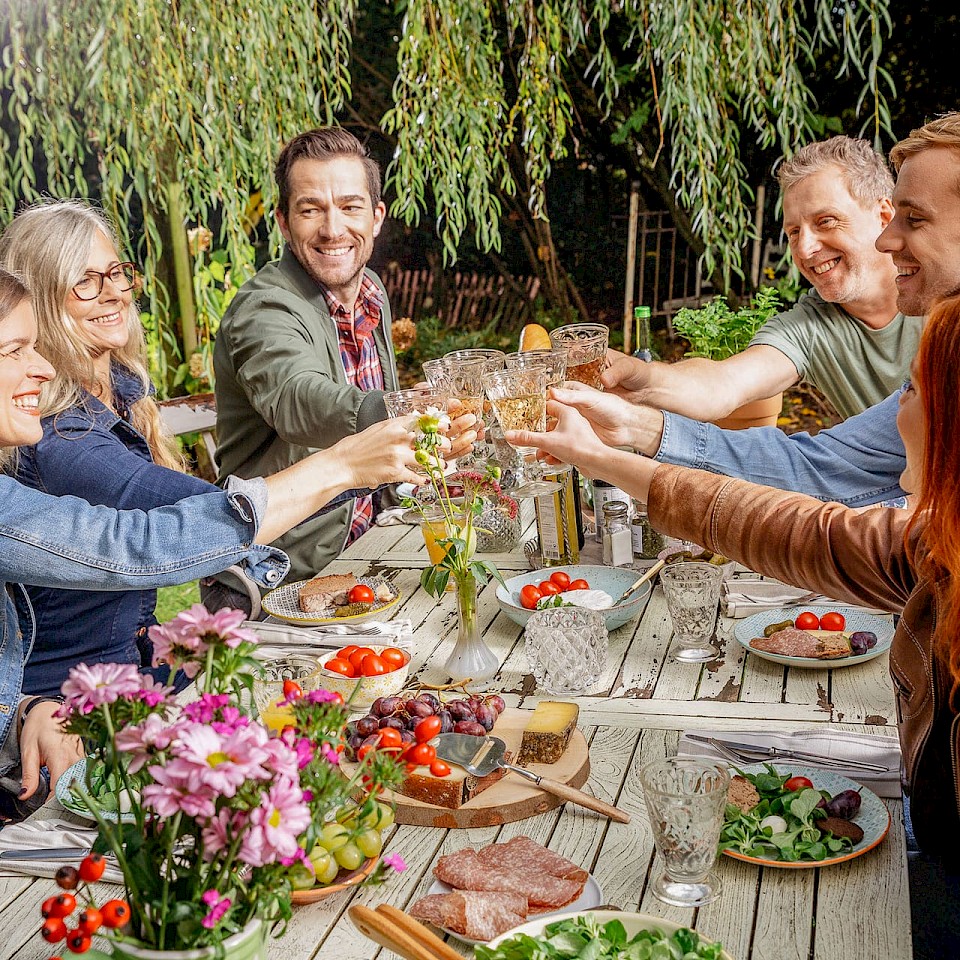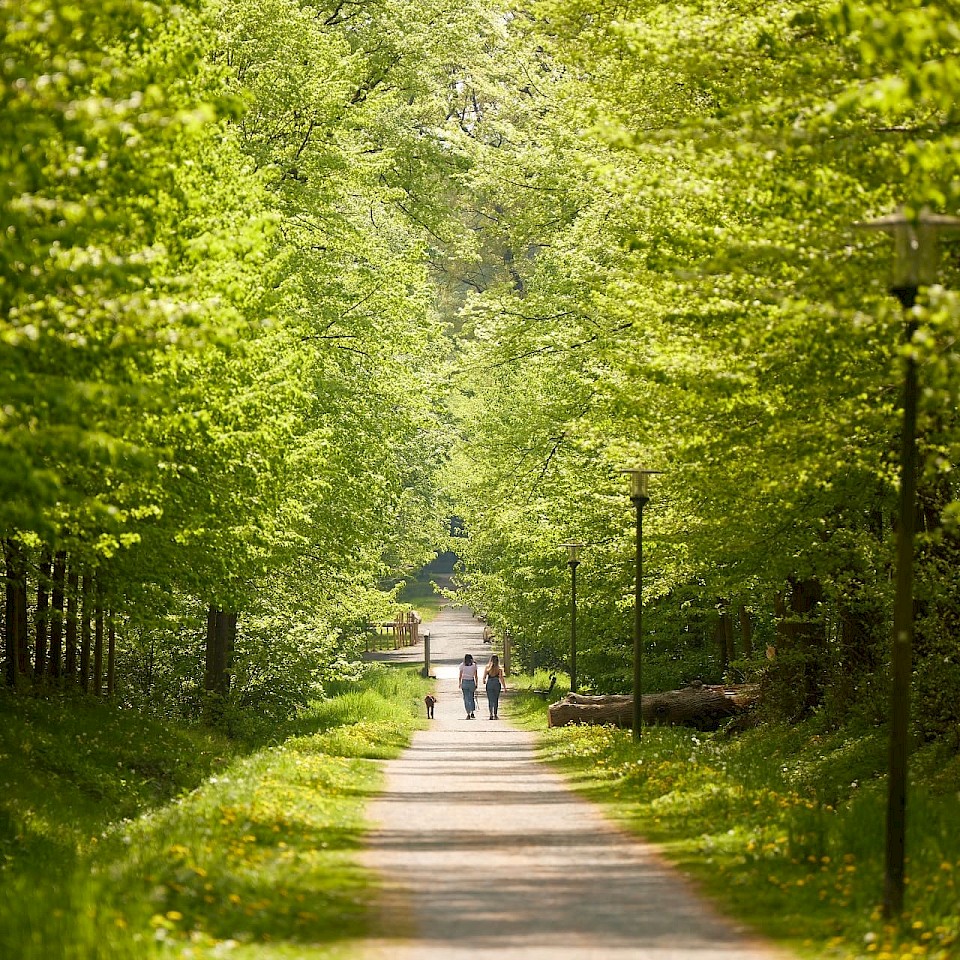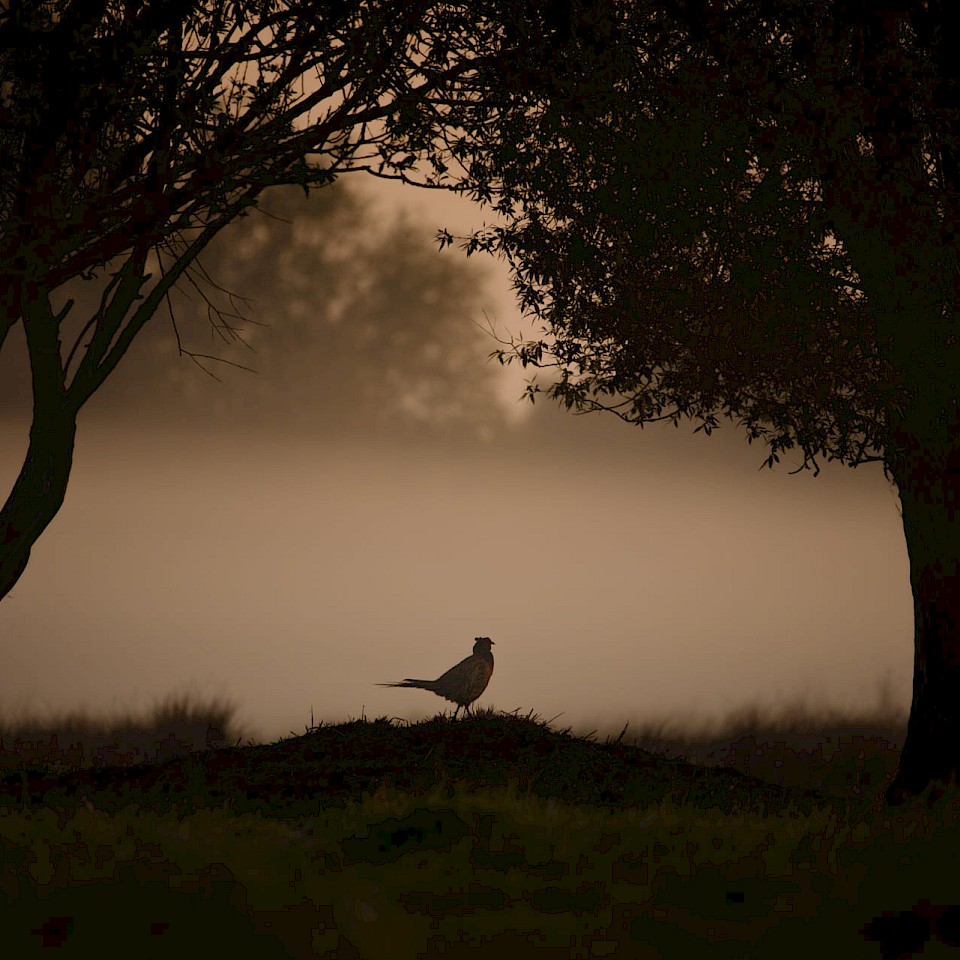Münsterland gardens in climate change
Springtime is garden time. And where better to enjoy the Münsterland sun than in your own garden, on the balcony or terrace? And best of all, of course, surrounded by flowers, shrubs and other plants. But the consequences of climate change are also making themselves felt here. More and more species are disappearing; the death rate of bees in Germany alone has been over 20 percent in some cases in recent years.
But the people of Münsterland do not have to stand idly by. Everyone can do something against the loss of biodiversity and the consequences of climate change. What can you do? Find out here!
Lots of green for more species protection: Find out in the video!
To activate this YouTube video, you must agree to the marketing cookies.
10 reasons why you should plant your garden
- With a near-natural garden, you can easily contribute to promoting biodiversity in Münsterland.
- A near-natural, planted garden protects you during floods because the water can seep away better.
- A near-natural, planted garden does not heat up so quickly in high temperatures and offers you a shady spot even in midsummer.
- A natural garden is easy to maintain and is therefore a good option even for those who don't like to garden.
- In a semi-natural garden you can observe a variety of different plants and animals.
- A near-natural garden can be created even with small measures.
- A near-natural garden can also be implemented at a low cost.
- With a near-natural garden you are fully in line with the trend.
- In a natural garden you can grow your own vegetables and herbs. It simply tastes best from your own garden!
- A colourful, diverse garden that creeps, hums and buzzes simply puts you in a good mood and lets you escape from everyday life.






